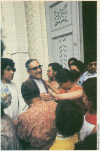Abstract
During the recent civil war in E1 Salvador, as in other modern wars, human rights abuses adversely affected health workers, patients, and medical facilities. The abuses themselves have been described in reports of human rights advocacy organisations but health sector adaptations to a hostile wartime environment have not. Agencies engaged in health work during the civil war adapted parties such as training of community based lay health workers, use of simple technology, concealment of patients and medical supplies, denunciation of human rights abuses, and multilevel negotiations in order to continue providing services. The Salvadorean experience may serve as a helpful case study for medical personnel working in wars elsewhere.
Full text
PDF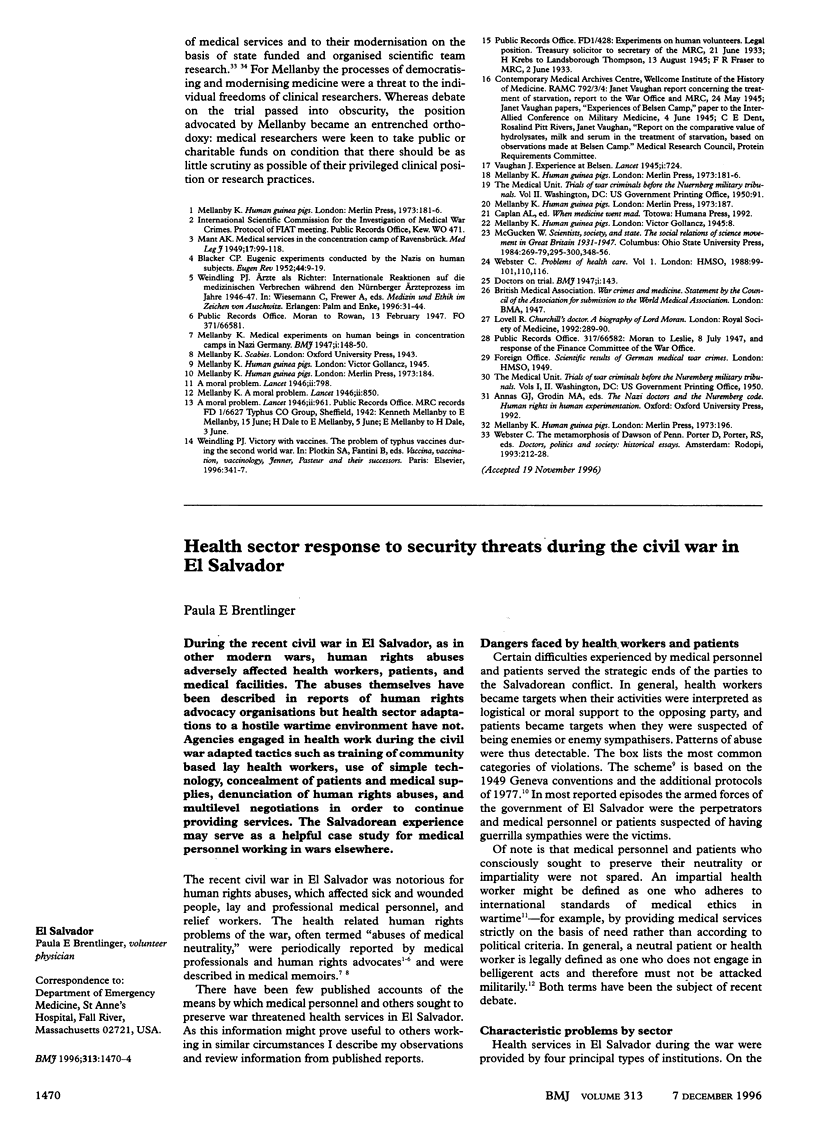
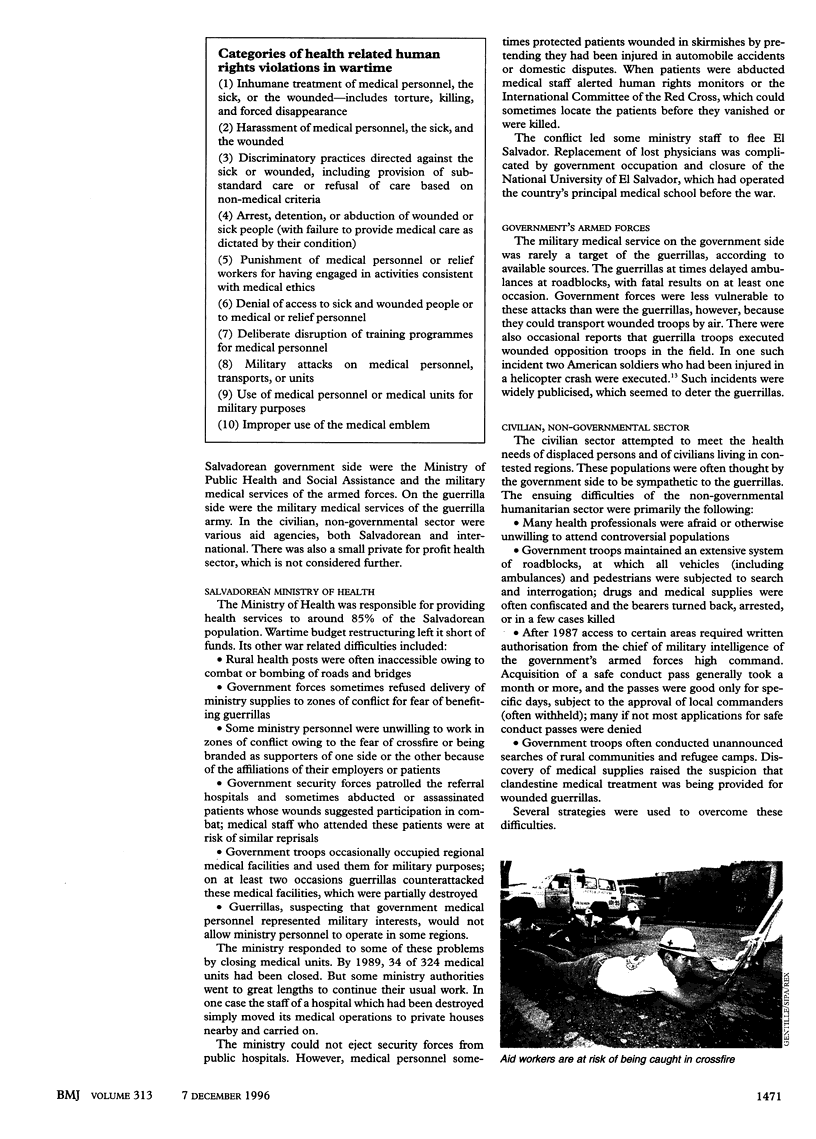
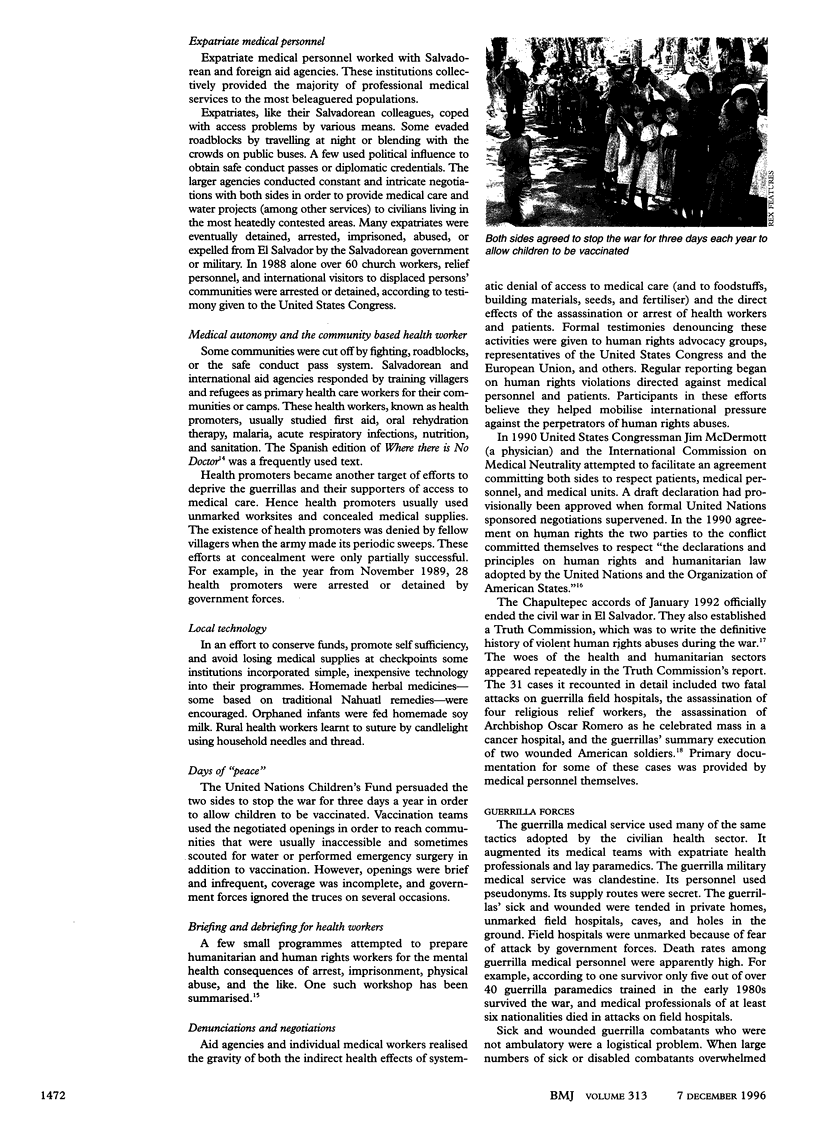
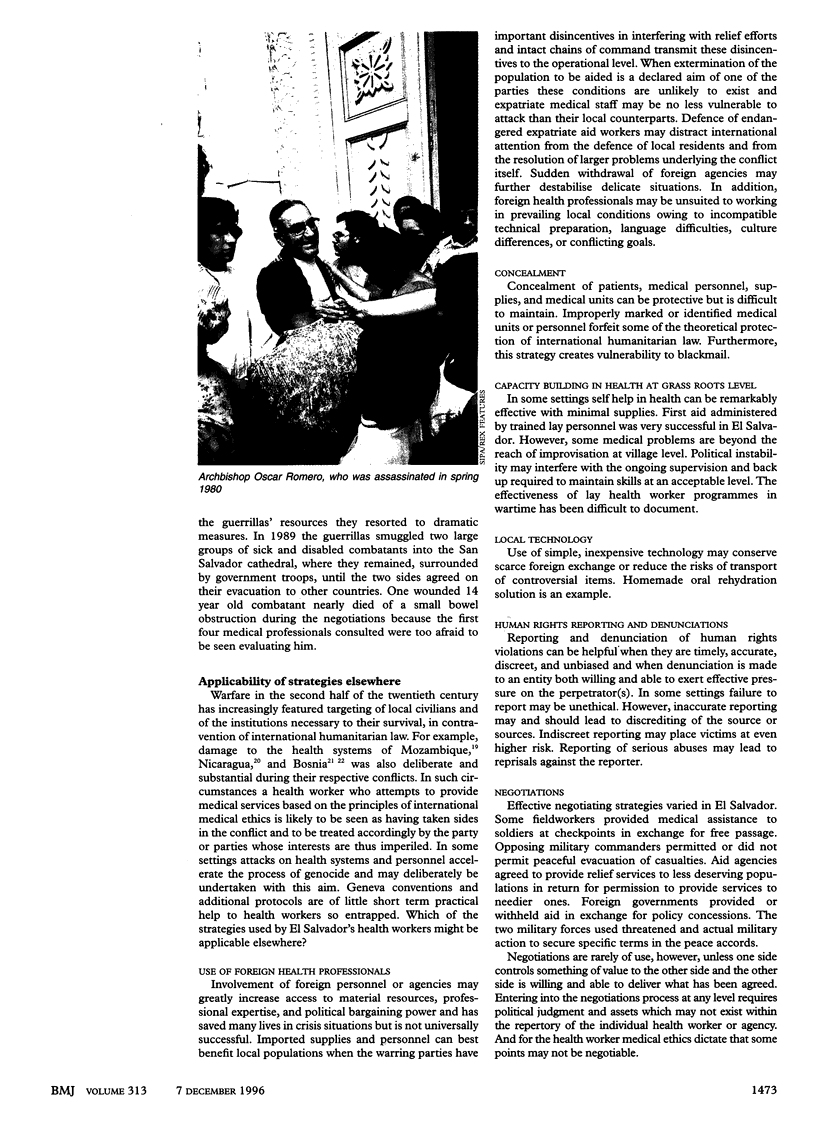
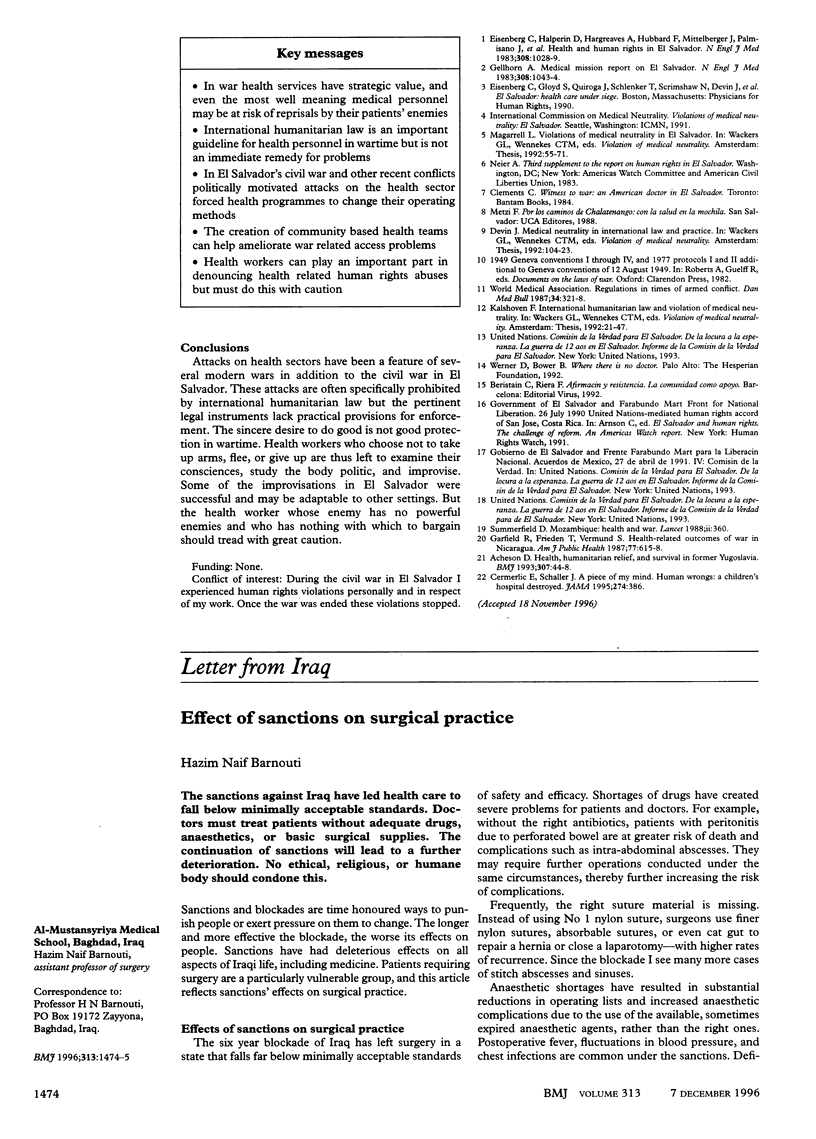
Images in this article
Selected References
These references are in PubMed. This may not be the complete list of references from this article.
- Acheson D. Health, humanitarian relief, and survival in former Yugoslavia. BMJ. 1993 Jul 3;307(6895):44–48. doi: 10.1136/bmj.307.6895.44. [DOI] [PMC free article] [PubMed] [Google Scholar]
- Cermerlic E. Z., Schaller J. G. A piece of my mind. Human wrongs: a children's hospital destroyed. JAMA. 1995 Aug 2;274(5):386–386. [PubMed] [Google Scholar]
- Garfield R. M., Frieden T., Vermund S. H. Health-related outcomes of war in Nicaragua. Am J Public Health. 1987 May;77(5):615–618. doi: 10.2105/ajph.77.5.615. [DOI] [PMC free article] [PubMed] [Google Scholar]
- Gellhorn A. Medical mission report on El Salvador. N Engl J Med. 1983 Apr 28;308(17):1043–1044. doi: 10.1056/NEJM198304283081736. [DOI] [PubMed] [Google Scholar]
- Summerfield D. Mozambique: health and war. Lancet. 1988 Feb 13;1(8581):360–360. doi: 10.1016/s0140-6736(88)91154-3. [DOI] [PubMed] [Google Scholar]





